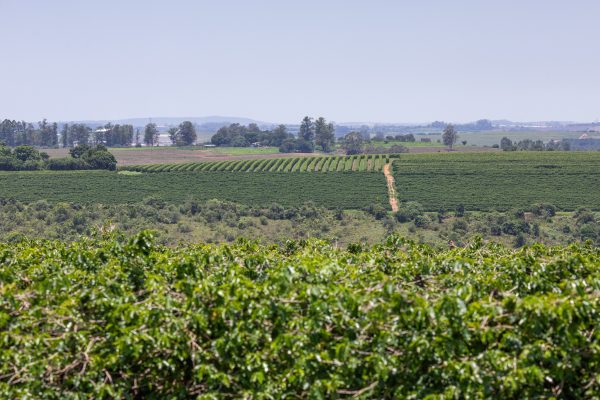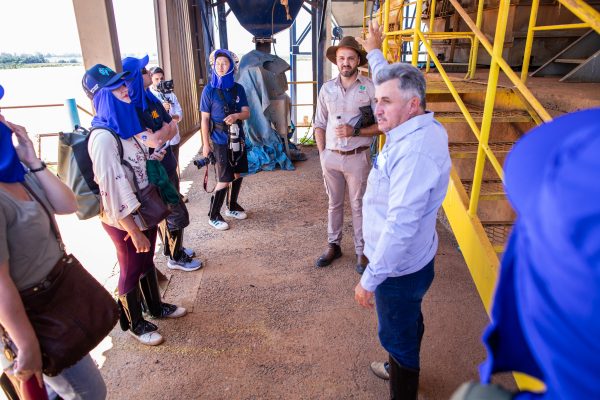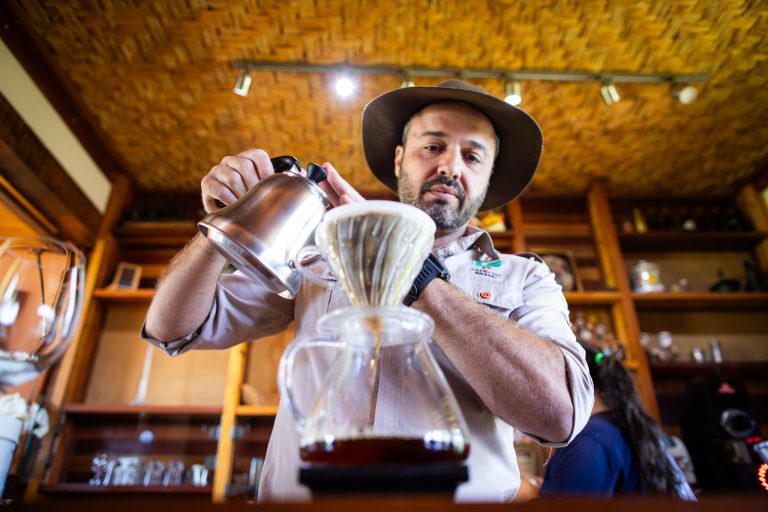São Paulo – Fazenda Barinas, based in the city of Araxá in the Brazilian state of Minas Gerais, is a successful case in producing specialty coffees. The century-old Castro Alves family land has produced specialty coffees since 2013 and started exports the following year.
Tiago Alves (pictured above) heads the production, representing the Castro Alves family. Alves received a group of journalists last week, who traveled at the invitation of the Brazilian Confederation of Agriculture and Livestock (CNA).

“We were pioneers here in the Cerrado Mineiro region,” said Alves.
In 2023, the farm produced 6,700 bags of Arabica coffee on its 175 hectares. For 2024, the goal is to produce 12,000 bags.
Around 80% of production is exported to countries such as Japan, South Korea, Germany, Poland, the United States, and Romania. Among the specialty coffees, varieties such as Yellow Bourbon, Topázio, Guará, Arara, Acauã, and Geisha are produced.
Around ten bags of Barinas’ specialty coffee of the Topázio and yellow Bourbon varieties have already been sent to Dubai in the United Arab Emirates. Alves hopes to expand business in the Middle East but recognizes he needs to know the market better.
The farm only sells green coffee. A 60 kg bag of specialty coffee is worth around BRL 1,600 (about USD 325 at the current rate), Alves informed. Specialty coffee is sundried on a concrete patio (also known as natural processing), which takes 15 to 20 days. Regular or commodity coffee is dried in machines for around 20 hours.
Most of the land – 500 hectares – is used to produce soybeans, maize, beans, and potatoes. Two hectares are for growing wine grapes that have just been planted and are expected to bear the first fruits in around two years. The varieties are Shiraz, Marselan, Cabernet Franc, and Sauvignon Blanc. In addition to future wine production, the farm has its own production of honey, milk, cheese, dulce de leche, and cachaça aging.
The farm welcomes visitors and plans a guesthouse to accommodate families on weekends.
Sustainability

According to Tiago, the farm is self-sustainable. It has three solar energy plants, uses a drip irrigation system in the coffee plantations, and introduced beekeeping into the coffee system to help reduce the need for chemical fertilizers. There is also a rotation of legumes on the rows of the coffee plantation, with different types of seeds to help fight pests, protect the soil from erosion, and create a fertile layer.
Barinas’ specialty coffees have the geographical indication (GI) of the Cerrado Mineiro Region, and the farm has certifications in management, social, agricultural, and environmental practices. Barinas is not a member of an association or cooperative and has its own equipment for drying, picking, storing, and transporting coffee to the Port of Santos in São Paulo.
The ANBA reporter traveled to the region at the invitation of CNA.
Translated by Elúsio Brasileiro




